Our Bodies Our Voices: Re-Imagining Sexual & Reproductive Justice in ‘Punjabi Canada’
Amrita Kumar-Ratta, Brampton and Mississauga
Project Description & Goals
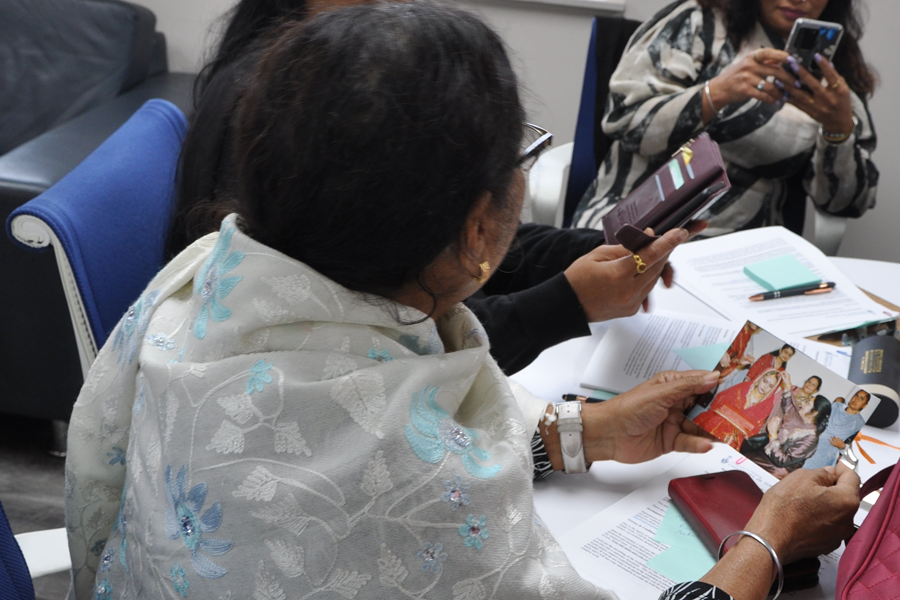
“Punjabi women’s bodies “have always been a site of control, negotiation, and liberation. Our yonis in particular (the Sanskrit word for vagina) seem to be something that everyone including their mothers-in-law, and lawmakers have an opinion about” – Dr. Taq Kaur, Menstrual Health Advocate.
‘Our Bodies Our Voices: Re-Imagining Sexual & Reproductive Justice in ‘Punjabi Canada’ is part of a larger research initiative that Amrita Kumar-Ratta is leading as part of her doctoral work at the University of Toronto. This project will create a community-centred space for critical conversations and creative storytelling among Punjabi women in Peel Region around the intergenerational trauma associated with sexual and reproductive silencing, surveillance, and violence, and around the creative and community-driven ways in which Punjabi women are reclaiming reproductive agency and advocating for reproductive justice.
This project involves facilitating a series of three day-long creative storytelling workshops for Punjabi- identifying women in/around Brampton, Ontario, one of the most densely populated Punjabi communities in Canada. Narrative and arts-based techniques will support Punjabi women in sharing stories about sexual and reproductive experiences. Topics covered include stories/experiences of marriage and intimate-partner relationships, sexuality, fertility and family planning, migration experiences, family relationships, and sexual and reproductive healthcare experiences. Specific activities include group conversations, body mapping, and creative writing exercises related to stories and experiences of sexual and reproductive violence, agency, and justice
I have realized through this project that an important part of doing community-engaged work through a decolonial feminist lens, means also taking care of myself in the process. This has meant slowing down, finding space to rest in between workshops, and working with a mental health professional specifically to do my own healing and processing work as I hold space for the stories, emotions, memories, and traumas of others.
Project Highlights
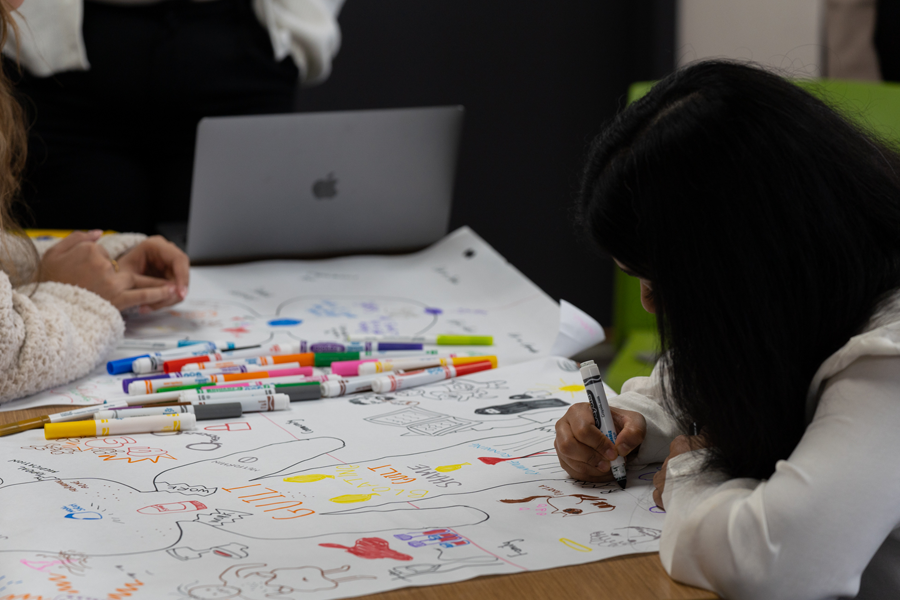
So far, with the support of the Ontario Community Changemakers Grant, this project has been very successful.
From September-November 2022, Amrita facilitated three storytelling workshops for Punjabi women at Seva Food Bank, an initiative of Sikhs Serving Canada, located at the border of the cities of Brampton and Mississauga. These workshops were intergenerational. The first session was designed for mature and elder Punjabi women; the second session was for Punjabi women/daughters who were born and raised in Canada; and the third session was for newcomer Punjabi women. A total of 15 women attended the sessions, ages 23-77, with varied experiences related to sexual and reproductive health, well-being, and decision-making, and they were supported by Punjabi-identifying and speaking counsellors, photographers, translators, and note-takers.
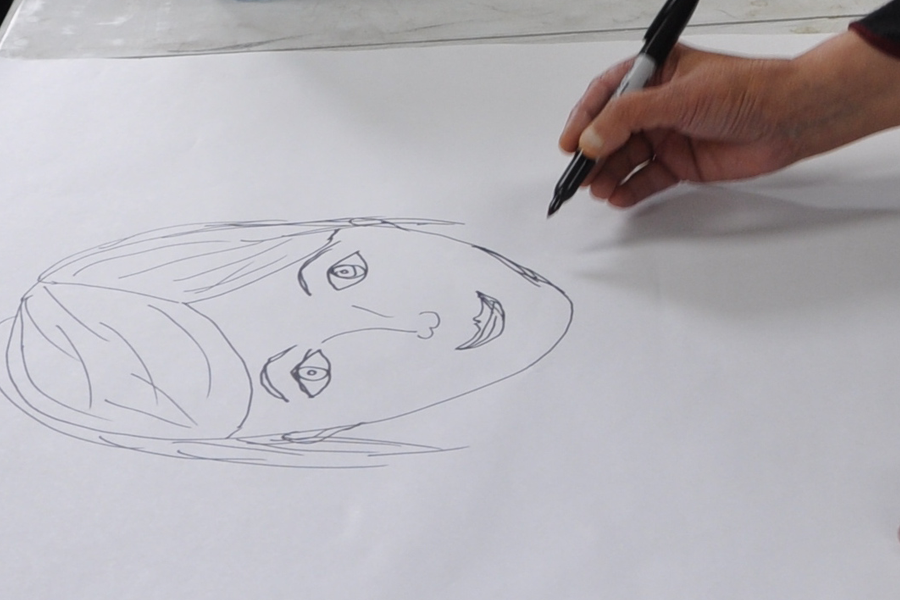
All the sessions were powerful spaces of storytelling, creative reflection, and community-building. They lasted 7 hours each and were filled with so much emotion – laughter, joy, sadness, anger, grief, and hope.
Many women came into the sessions curious about what to expect, and they left feeling lighter, feeling seen, and being held by the community. All participants communicated that they did not realize they would have so much to say about such ‘taboo topics’ and many of them articulated a deeper desire to support further change-making initiatives related to gender justice, sexual and reproductive health, and immigration equity in Peel Region.
It was beautiful to witness so much intergenerational story-sharing and community-building related to sexual and reproductive health, rights, and justice happening in the community.
Project Challenges
“The most significant challenge so far has been recruiting participants for the workshop series,” says the Changemaker. “I began with a goal of recruiting 8-12 participants for each session and quickly realized that this would not be possible given the length of workshops and given the sensitive topic. Ultimately, through collaborative partnerships with local organizations – such as Seva Food Bank, Laadliyan Celebrating Daughters, and Malton Women Council – and through the network I’ve cultivated through the Shades of Brown Girl storytelling community, I was able to recruit 4-6 participants per session”, she adds. With these smaller numbers, each session could be more intimate, which meant that participants could tell their stories more fully. The smaller number of participants translated into more resources for food, travel coverage, and honoraria for participants and for each of the support team members.
Another major challenge of the project has been finding time and space to process the difficult experiences and emotions being shared. Amrita has realized through this project that an important part of doing community-engaged work through a decolonial feminist lens means also taking care of herself in the process. This has meant slowing down, finding space to rest in between workshops, and working with a mental health professional specifically to do her own healing and processing work as she holds space for the stories, emotions, memories, and traumas of others.
What’s Next
For the rest of the grant period, Amrita is working on having one-on-one conversations with women who could not attend workshops but have expressed a strong desire to share their stories and contribute to more visibility of common experiences around sexual and reproductive health and wellbeing among Punjabi women in Brampton and Peel Region. She is also working on organizing, analyzing, and telling a bigger story about the rich materials she’s collected while doing these workshops.
“From the stories communicated orally, to the big emotions I witnessed in sessions, to the body maps, written letters, stories, poems, and reflections that were created by participants, there is so much community wisdom and greater learning about sexual and reproductive health, wellbeing, and decision-making among Punjabi women in Peel Region that I wish to share with a broader audience”.
About Amrita
A writer, storyteller, social researcher, educator, and community curator, Amrita works rooted in principles of decolonial, transnational, and intersectional feminism and transformative justice. Her areas of interdisciplinary knowledge and practice include gender, sexuality, and health; justice, equity, and inclusion (JEDI) strategy; community engagement; and transformative arts education.
She is currently a Ph.D. candidate in Human Geography at the University of Toronto. Her research explores, unpacks, and gives voice to the sexual & reproductive lives, experiences, and justice work of Punjabi women in the Peel Region in Ontario and the Lower Mainland Region in British Columbia.
She is also the Founder & Creator of Shades of Brown Girl, a global creative storytelling and community healing space for South Asian women and femmes.
Note: Amrita Kumar-Ratta’s doctoral work is also supported by Oxfam Canada’s 2022 Community-Based Sexual and Reproductive Health and Rights Funding Initiative, the University of Toronto School of Cities Graduate Fellowship Award, and the Social Sciences and Humanities Research Council (SSHRC) Doctoral Fellowship.
#socialinclusion #civicengagement #women
Instagram: @amritakumarr @shadesofbrowngirl Twitter: @i_amrita_
LinkedIn: www.linkedin.com/in/amritakumarratta
Centring Race, Gender, and Disability in Active Transportation
Armi De Francia, Ajax
Project Description & Goals
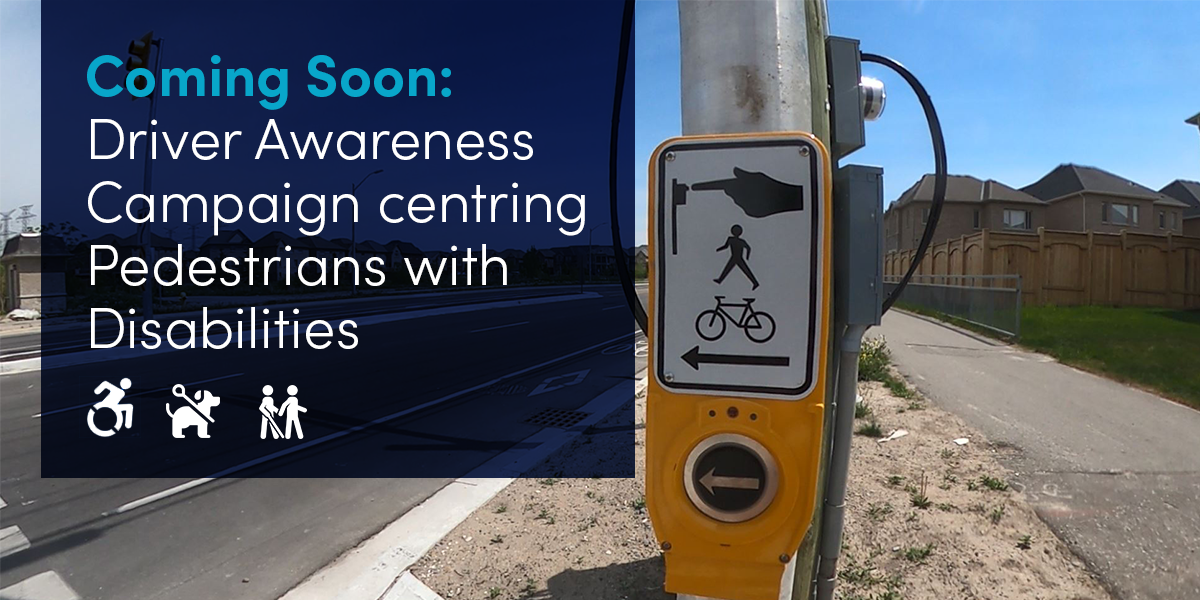
Centring Race, Gender, and Disability in Active Transportation serves to improve inclusive engagement in transportation through a Women of Colour Bike Ride and a Driver Awareness Campaign centring Pedestrians with Disabilities.
The goal is to foster social inclusion and increase civic engagement in active transportation by building capacity and encouraging active transportation among women of colour and people with disabilities.
During the past six months, Armi De Franci worked with staff and project partners to identify available resources and plan according to different capacity levels. Armi had multiple meetings with Women of Colour Durham Collective, BikePOC, and the Diversity and Inclusion Coordinator to discuss the Women of Colour Bike Ride event content, messaging, and routes. For the Driver Awareness Campaign Centring Pedestrians with Disabilities, she drafted a recruitment survey and will work with the Accessibility Coordinator to recruit participants.
“I challenge misconceptions about who can benefit from active transportation (walking, biking, and other muscle-powered ways of getting around). I believe that active transportation should be safe and practical for every body – including bodies of people who are Black, Brown, disabled, fat, gender non-conforming, or any combination of these.”
Project Highlights
To date, the project impacted the community by strengthening relationships and increasing understanding of the capacity and desires of partners. The project also received positive feedback from Council. Furthermore, the upcoming Transportation Demand Management Plan proposes engaging equity-deserving communities and refers to this project.
Project Challenges
The main challenge the project faced was balancing it with other competing tasks during a mayoral election with limited capacity. To overcome this, the Ajax-based Changemaker used the project management materials the Ontario Community Changemakers Program provided to participants, took additional project management courses, created work back schedules, and looked for synergies with other projects. On the personal side, Armi is also working on setting effective boundaries to enable her to work on this priority project. Since the Fall of 2022, Armi shares that she has improved at expressing her boundaries to others and managing expectations around her capacity.
What’s Next
Stay tuned for an exciting bike ride and insightful campaign.
Women of Colour Bike Ride
Saturday, May 6, 2:30-5pm at the Ajax Community Centre.
This bike ride is curated for women in Ajax who identify as Black, Indigenous, Persons of Colour or members of the 2SLGBTQ+ community. It includes a:
- No-drop bike ride (~18km) bike ride led by BikePOC where no rider gets left behind.
- Social facilitated by Women of Colour Durham Collective with presentations on reconnection to the outdoors and social justice bike movements centring Black, Indigenous, and people of colour identifying as women or as members of the 2SLGBTQ+ community.
Driver Awareness Campaign Centring Pedestrians with Disabilities
This video campaign aims to build a culture of respect among drivers and a collective understanding of the capacities of and barriers encountered by pedestrians with disabilities crossing intersections. By collaborating with residents with disabilities, it will also disprove the misconception that people with disabilities cannot benefit from walking (which includes the use of a mobility aid device).
Below is the campaign timeline:
- March 2023: Recruitment
- April 2023: Capacity building workshop May-June: Filming and editing
- July: Launch
People with disabilities and Black, Indigenous, and People of Colour who identify as women or as members of the 2SLGBTQ+ community are worthy of community, safety, and mobility choice. Ultimately, this project is about collaborating with community leadership, increasing representation, and enhancing community participation in future transportation projects.
About Armi
Armi grew up in Durham Region during her teenage years. She now serves as the Active Transportation Coordinator in the Town of Ajax. Though not from Ajax, she often bikes to Ajax and is familiar with the challenges of getting around without a vehicle.
#socialinclusion #equity #mobility
Goderich Free Little Pantry
Avery Greaves, Goderich
Project Description & Goals
The Goderich Free Little Pantry (GFLP) project arose from the Ontario Community Changemakers grant. GFLP helps to address food scarcity and poverty in Goderich, Ontario. Despite being a small, rural community, Goderich still faces many of the same problems that larger urban centres do. The three pantries, which are located across the town of 8,000 people, allow anyone in need to take whatever items they may require (including, but not limited to food items and toiletries).
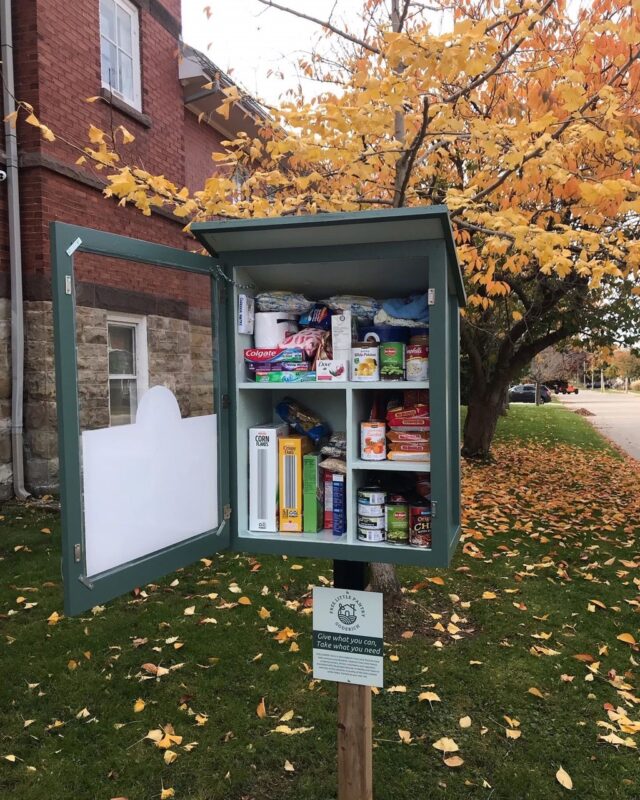
While the project initially started out as a one-person initiative, it has quickly grown. By the time that the pantries were installed in October of 2022, 21 volunteers were already involved. These volunteers check in on the three pantries daily, restocking them, removing ‘inappropriate’ items and more. As of January 2023, there is now an Executive Committee of 15 individuals, who oversee everything from accounting to the maintenance of the physical pantries to fundraising and more.
The pantries have been described by some as a ‘godsend’. While Goderich has two amazing food banks, they are located on the outer edges of the town. Some individuals find it difficult to trek the nearly 3 km (in each direction) to the food banks, to pick up necessary items, therefore making use of the pantries.
Other individuals utilizing the pantries do not feel that they need to use the food banks, as their situations are temporary (like in the case of being between jobs, waiting for their social security cheques to arrive, etc.).
“Goderich Free Little Pantry allows community members to become direct agents of change, being able to donate directly to the pantries”.
Project Highlights

The demands and needs of the project gave space to the creation of the Executive Committee, spreading out the duties and responsibilities.
The Town of Goderich has been extremely supportive of this project from its onset. There has been zero to the little red tape involved – with multiple councillors being involved with the initiative, the Town has provided property for the pantries to be placed on and has placed insurance on the pantries, etc.
Other highlights include the large donations that the pantries have received, which have allowed the project to continue. On top of the OCC grant, the project has raised approximately $10,000 in financial donations, alongside thousands of dollars in food items/toiletries from local businesses, community groups, individuals, etc.
Project Challenges
The project quickly became a full-time job for Avery, on top of her actual full-time job, and burnout was approaching, as was the disconnect from friends and family – with almost every spare moment dedicated to the pantries.
Additionally, the needs of the community were far greater than Avery initially realized – with 2/3 of the pantries currently emptying out within an hour of being restocked (on average the pantries combined require $250 in food items a week). There is also a disconnect to much of the community that they can donate directly to the pantries themselves (believing that only volunteers can place items in them). These issues are still being addressed – one solution is better educating the public about the pantries and the other available services in the community (like the food banks).
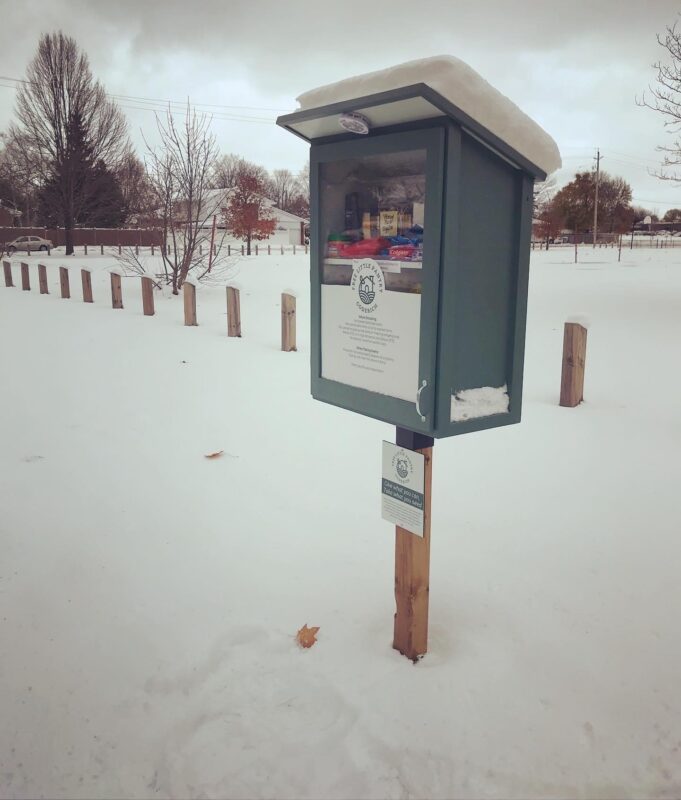
What’s Next
The Executive Committee has established that to continue with this project it needs $15,000 a year, at minimum. Therefore, it is considering several fundraising opportunities (like merchandise, a walk-a-thon, paint night, etc.). The sheer size of the project could also benefit from having a part-time manager to oversee it, which the Executive Committee is also looking into (which will require additional funds). The organization would also love to become a registered non-profit organization eventually.
About Avery
Avery Greaves is a community-involved librarian, living on Ontario’s west coast. Over the years she has been involved in committees addressing homelessness, mentoring teens, carrying out TNR cat releases and more. In her role as a librarian, she primarily oversees adulting programming, assists with technology and explores the ways in which the library can continuously connect with the needs of her community.
Learn more about her project: www.goderichfreelittlepantry.com
Facebook: www.facebook.com/goderichfreelittlepantry
Instagram: @goderichfreelittlepantry
Email:goderichfreelittlepantry@hotmail.com
#socialinclusion #foodbanks #equity

